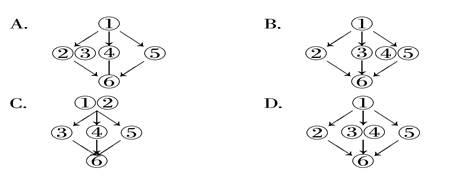ÌâÄ¿ÄÚÈİ
I returned to Abuja, the capital of Nigeria, after graduation£® I had been there before my mother became a minister£® Two weeks later, I told my mother I was bored£® She said, ¡°Here¡¯re the car keys£® Go and buy some fruit£®¡±_36_, I jumped into the car and speeded off£®
Seeing me or rather my 37 , a boy sprang up, 38 to sell his bananas and peanuts£® ¡°Banana 300 naira£® Peanut 200 naira!¡± Looking at his black-striped bananas, I 39 to 200 total for the fruit and nuts£® He 40 and I handed him a 300 naira note£® He didn¡¯t have 41 , so I told him not to worry£® He was 42 and smiled a row of perfect teeth£®
When, two weeks later, I 43 this same boy, I was more aware of my position in Nigerian society£® I should 44 this country as the son of a 45 £® But it was hard to find pleasure in a place where it was so 46 to see a little boy who should have been in school selling fruit£®
¡°What¡¯s up?¡± I asked£® He answered in 47 English, ¡°I¡I no get money to buy book£®¡± I took out two 500 naira notes£® He looked around 48 before sticking his hand into the car 49 the bills£® One thousand naira means a lot to a family that 50 only 15,000 each year£®
The next morning, security officers told me, ¡°In this place, when you give a little, people think you¡¯re a fountain of opportunity£®¡± 51 it¡¯s right, but this happens everywhere in the world£® I wondered if my little friend had actually used the money for 52 £® After six months¡¯ work in northern Nigeria, I returned and saw him again standing on the road£® ¡°Are you in school now?¡± He nodded£® A silence fell as we looked at each other, and then I 53 what he wanted£® I held out a 150 naira note£® ¡°Take this£®¡± He shook his head fiercely and stepped back 54 hurt£® ¡°It¡¯s a gift£®¡± I said£® Shaking his head again, he handed me a basket of bananas and peanuts£® ¡°I¡¯ve been waiting to 55 these to you£®¡±
Seeing me or rather my 37 , a boy sprang up, 38 to sell his bananas and peanuts£® ¡°Banana 300 naira£® Peanut 200 naira!¡± Looking at his black-striped bananas, I 39 to 200 total for the fruit and nuts£® He 40 and I handed him a 300 naira note£® He didn¡¯t have 41 , so I told him not to worry£® He was 42 and smiled a row of perfect teeth£®
When, two weeks later, I 43 this same boy, I was more aware of my position in Nigerian society£® I should 44 this country as the son of a 45 £® But it was hard to find pleasure in a place where it was so 46 to see a little boy who should have been in school selling fruit£®
¡°What¡¯s up?¡± I asked£® He answered in 47 English, ¡°I¡I no get money to buy book£®¡± I took out two 500 naira notes£® He looked around 48 before sticking his hand into the car 49 the bills£® One thousand naira means a lot to a family that 50 only 15,000 each year£®
The next morning, security officers told me, ¡°In this place, when you give a little, people think you¡¯re a fountain of opportunity£®¡± 51 it¡¯s right, but this happens everywhere in the world£® I wondered if my little friend had actually used the money for 52 £® After six months¡¯ work in northern Nigeria, I returned and saw him again standing on the road£® ¡°Are you in school now?¡± He nodded£® A silence fell as we looked at each other, and then I 53 what he wanted£® I held out a 150 naira note£® ¡°Take this£®¡± He shook his head fiercely and stepped back 54 hurt£® ¡°It¡¯s a gift£®¡± I said£® Shaking his head again, he handed me a basket of bananas and peanuts£® ¡°I¡¯ve been waiting to 55 these to you£®¡±
| Ğ¡Ìâ1: |
|
| Ğ¡Ìâ2: |
|
| Ğ¡Ìâ3: |
|
| Ğ¡Ìâ4: |
|
| Ğ¡Ìâ5: |
|
| Ğ¡Ìâ6: |
|
| Ğ¡Ìâ7: |
|
| Ğ¡Ìâ8: |
|
| Ğ¡Ìâ9: |
|
| Ğ¡Ìâ10: |
|
| Ğ¡Ìâ11: |
|
| Ğ¡Ìâ12: |
|
| Ğ¡Ìâ13: |
|
| Ğ¡Ìâ14: |
|
| Ğ¡Ìâ15: |
|
| Ğ¡Ìâ16: |
|
| Ğ¡Ìâ17: |
|
| Ğ¡Ìâ18: |
|
| Ğ¡Ìâ19: |
|
| Ğ¡Ìâ20: |
|
Ğ¡Ìâ1:C
Ğ¡Ìâ1:A
Ğ¡Ìâ1:C
Ğ¡Ìâ1:B
Ğ¡Ìâ1:C
Ğ¡Ìâ1:A
Ğ¡Ìâ1:D
Ğ¡Ìâ1:B
Ğ¡Ìâ1:B
Ğ¡Ìâ1:A
Ğ¡Ìâ1:D
Ğ¡Ìâ1:B
Ğ¡Ìâ1:D
Ğ¡Ìâ1:A
Ğ¡Ìâ1:C
Ğ¡Ìâ1:A
Ğ¡Ìâ1:C
Ğ¡Ìâ1:D
Ğ¡Ìâ1:B
Ğ¡Ìâ1:D
ÕâÊÇһƪ¼ÇĞğĞÍÍêĞÎÌî¿Õ£¬×÷Õßͨ¹ıÃèĞ´×Ô¼ºÓëһλСÄк¢µÄżȻÏàÓöÒÔ¼°¶ÔËûµÄ°ïÖú¸æËßÊÀÈË£º°®ÊÇÏ໥µÄ£¬Óи¶³ö¾ÍÓлر¨¡£×÷Õßͨ¹ıÃèĞ´ÂòË®¹û¡¢×ÊÖúĞ¡Äк¢ÉÏѧ¼°Ğ¡Äк¢»Ø±¨ÕâÈı¼şÊ£¬°ÑÕûƪÎÄÕ´®ÆğÀ´¡£
Ğ¡Ìâ1: C¡¡´Óºó¾äI jumped into the car and speeded off ¿ÉÖª¡°ÎÒ¡±·Ç³£¸ßĞË£¬Óà delighted¡£
Ğ¡Ìâ1:A¡¡ÉÏÎÄÌáµ½¡°ÎÒ¡±¿ª³µÈ¥ÂòË®¹û£¬ËùÒÔµ±Ğ¡Äк¢¿´µ½¡°ÎÒ¡±£¬¸üÈ·ÇеØ˵ÊÇ¿´µ½¡°ÎÒ¡±µÄÆû³µ£¬ËûÌøÁËÆğÀ´¡£
Ğ¡Ìâ1:C¡¡´ÓÉÏÎÄĞ¡Äк¢µÄ¶¯×÷¿ÉÖªËû·Ç³£¿ÊÍû°ÑÏ㽶ºÍ»¨ÉúÂô¸ø×÷Õߣ¬´Ë´¦Óà eager¡£
Ğ¡Ìâ1:B¡¡×÷ΪÂòÖ÷£¬ÔÚÓëĞ¡ÉÌ··´ò½»µÀʱ£¬Í¨³£ĞèÒª¿³¼Û¡£ÓÃbargain downÌÖ¼Û»¹¼Û£¬·ûºÏÓï¾³¡£
Ğ¡Ìâ1:C¡¡Âô·½×îºóͬÒâÂò·½Ëù³öµÄ¼ÛǮʱ£¬²Å¿ÉÄܳɽ»£¬Âò·½Ò²²Å¿ÉÄܸøËûÇ®¡£
Ğ¡Ìâ1:A¡¡ÕâÀïĞ¡Äк¢Ó¦¸ÃÕÒ¸ø×÷ÕßÁãÇ®change¡£
Ğ¡Ìâ1:D¡¡¸ù¾İËûÕÒ²»¿ª¡°ÎÒ¡±µÄÇ®£¬¡°ÎÒ¡±°²Î¿Ëû£¬²»ÈÃËû׿±ÒÔ¼°ºóÎÄµÄ smiled a row of perfect teeth¿ÉÒÔÅжÏĞ¡Äк¢ºÜ¸Ğ¼¤¡£
Ğ¡Ìâ1:B¡¡¾äÒâΪ£º¡°ÎÒ¡±ÓÖÓëËû²»ÆÚ¶øÓöÁË£¬Ëĸö±¸Ñ¡ÏîÖĞÖ»ÓĞrun intoÓĞ´ËÒâÒå¡£
Ğ¡Ìâ1: B¡¡´ÓĞ¡Äк¢µÄ´ğÓï¿ÉÖªËû˵»°½á½á°Í°Í¡£broken ¡°²»Á÷ÀûµÄ£¬õ¿½ÅµÄ¡±·ûºÏÌâÒâ¡£
Ğ¡Ìâ1:D¡¡Èç¹ûÒ»¸öÈËÔÚ×öij¼şÊÂÇéÇ°ÏÈËÄÏ¿´Ò»Ï£¬ËµÃ÷Ëû½ôÕŲ»°²£¬¿Öű»ËûÈË¿´µ½¡£
Ğ¡Ìâ1:A¡¡Äк¢Ïò³µÀïÉìÊÖ£¬ÆäÄ¿µÄ¾ÍÊÇÄÃ×÷Õ߸øËûµÄÇ®¡£for±íÄ¿µÄ¡£
Ğ¡Ìâ1:C¡¡Ò»Ç§ÄÎÀ¶ÔÓÚÿÄêÊÕÈë½ö½öÎåÍòÄÎÀµÄ¼ÒÍ¥À´ËµÒâζןܶࡣ±¾ÌâËù¸øËĸöÑ¡ÏîÖĞ£¬Ö»ÓĞ makeÓĞ¡°»ñµÃ£¬ÕõµÃ¡±Ö®Òâ¡£
Ğ¡Ìâ1:A¡¡butÒı³öµÄ¾ä×Ó±íʾתÕÛ£¬ÓÉ´ËÎÒÃÇ¿ÉÒÔÍƲâ×÷ÕßÈÏΪsecurity officersËù˵µÄ¿ÉÄÜÊǶԵġ£
Ğ¡Ìâ1:C¡¡ÉÏÎÄÌᵽСÄк¢ËµÃ»Ç®ÂòÊ飬¡°ÎÒ¡±×ÊÖúÁËËû1,000ÄÎÀ¡£ÏÖÔÚ¡°ÎÒ¡±ÏëÖªµÀËûÊÇ·ñÕæµÄÓÃÕâĞ©Ç®ÂòÊéÁË¡£
Ğ¡Ìâ1:D¡¡¶ÌÔݵijÁĬ֮ºó£¬×÷ÕßÒÔΪСÄк¢ÓÖÀ´ÒªÇ®£¬È´²»ºÃÒâ˼¿ª¿Ú¡£ÓÃrealized¡°Òâʶµ½¡±·ûºÏÌâÒâ¡£
Ğ¡Ìâ1:B¡¡×÷ÕßÌͳö500ÄÎÀ¸øĞ¡Äк¢£¬¶øËûÈ´ÍùºóÍË£¬ºÃÏñÊܵ½ÁËÉ˺¦ËƵġ£
Ğ¡Ìâ1:D¡¡Ğ¡Äк¢Êܹı×÷ÕߵĶ÷»İ£¬Ïë°ÑË®¹ûºÍ»¨ÉúË͸ø×÷Õß×÷Ϊ±¨´ğ¡£AÏîͨ³£Ö¸²»µ±Ãæ¸ø£¬ËùÒÔ²»ÄÜÑ¡¡£
Ğ¡Ìâ1: C¡¡´Óºó¾äI jumped into the car and speeded off ¿ÉÖª¡°ÎÒ¡±·Ç³£¸ßĞË£¬Óà delighted¡£
Ğ¡Ìâ1:A¡¡ÉÏÎÄÌáµ½¡°ÎÒ¡±¿ª³µÈ¥ÂòË®¹û£¬ËùÒÔµ±Ğ¡Äк¢¿´µ½¡°ÎÒ¡±£¬¸üÈ·ÇеØ˵ÊÇ¿´µ½¡°ÎÒ¡±µÄÆû³µ£¬ËûÌøÁËÆğÀ´¡£
Ğ¡Ìâ1:C¡¡´ÓÉÏÎÄĞ¡Äк¢µÄ¶¯×÷¿ÉÖªËû·Ç³£¿ÊÍû°ÑÏ㽶ºÍ»¨ÉúÂô¸ø×÷Õߣ¬´Ë´¦Óà eager¡£
Ğ¡Ìâ1:B¡¡×÷ΪÂòÖ÷£¬ÔÚÓëĞ¡ÉÌ··´ò½»µÀʱ£¬Í¨³£ĞèÒª¿³¼Û¡£ÓÃbargain downÌÖ¼Û»¹¼Û£¬·ûºÏÓï¾³¡£
Ğ¡Ìâ1:C¡¡Âô·½×îºóͬÒâÂò·½Ëù³öµÄ¼ÛǮʱ£¬²Å¿ÉÄܳɽ»£¬Âò·½Ò²²Å¿ÉÄܸøËûÇ®¡£
Ğ¡Ìâ1:A¡¡ÕâÀïĞ¡Äк¢Ó¦¸ÃÕÒ¸ø×÷ÕßÁãÇ®change¡£
Ğ¡Ìâ1:D¡¡¸ù¾İËûÕÒ²»¿ª¡°ÎÒ¡±µÄÇ®£¬¡°ÎÒ¡±°²Î¿Ëû£¬²»ÈÃËû׿±ÒÔ¼°ºóÎÄµÄ smiled a row of perfect teeth¿ÉÒÔÅжÏĞ¡Äк¢ºÜ¸Ğ¼¤¡£
Ğ¡Ìâ1:B¡¡¾äÒâΪ£º¡°ÎÒ¡±ÓÖÓëËû²»ÆÚ¶øÓöÁË£¬Ëĸö±¸Ñ¡ÏîÖĞÖ»ÓĞrun intoÓĞ´ËÒâÒå¡£
Ğ¡Ìâ1: B¡¡´ÓĞ¡Äк¢µÄ´ğÓï¿ÉÖªËû˵»°½á½á°Í°Í¡£broken ¡°²»Á÷ÀûµÄ£¬õ¿½ÅµÄ¡±·ûºÏÌâÒâ¡£
Ğ¡Ìâ1:D¡¡Èç¹ûÒ»¸öÈËÔÚ×öij¼şÊÂÇéÇ°ÏÈËÄÏ¿´Ò»Ï£¬ËµÃ÷Ëû½ôÕŲ»°²£¬¿Öű»ËûÈË¿´µ½¡£
Ğ¡Ìâ1:A¡¡Äк¢Ïò³µÀïÉìÊÖ£¬ÆäÄ¿µÄ¾ÍÊÇÄÃ×÷Õ߸øËûµÄÇ®¡£for±íÄ¿µÄ¡£
Ğ¡Ìâ1:C¡¡Ò»Ç§ÄÎÀ¶ÔÓÚÿÄêÊÕÈë½ö½öÎåÍòÄÎÀµÄ¼ÒÍ¥À´ËµÒâζןܶࡣ±¾ÌâËù¸øËĸöÑ¡ÏîÖĞ£¬Ö»ÓĞ makeÓĞ¡°»ñµÃ£¬ÕõµÃ¡±Ö®Òâ¡£
Ğ¡Ìâ1:A¡¡butÒı³öµÄ¾ä×Ó±íʾתÕÛ£¬ÓÉ´ËÎÒÃÇ¿ÉÒÔÍƲâ×÷ÕßÈÏΪsecurity officersËù˵µÄ¿ÉÄÜÊǶԵġ£
Ğ¡Ìâ1:C¡¡ÉÏÎÄÌᵽСÄк¢ËµÃ»Ç®ÂòÊ飬¡°ÎÒ¡±×ÊÖúÁËËû1,000ÄÎÀ¡£ÏÖÔÚ¡°ÎÒ¡±ÏëÖªµÀËûÊÇ·ñÕæµÄÓÃÕâĞ©Ç®ÂòÊéÁË¡£
Ğ¡Ìâ1:D¡¡¶ÌÔݵijÁĬ֮ºó£¬×÷ÕßÒÔΪСÄк¢ÓÖÀ´ÒªÇ®£¬È´²»ºÃÒâ˼¿ª¿Ú¡£ÓÃrealized¡°Òâʶµ½¡±·ûºÏÌâÒâ¡£
Ğ¡Ìâ1:B¡¡×÷ÕßÌͳö500ÄÎÀ¸øĞ¡Äк¢£¬¶øËûÈ´ÍùºóÍË£¬ºÃÏñÊܵ½ÁËÉ˺¦ËƵġ£
Ğ¡Ìâ1:D¡¡Ğ¡Äк¢Êܹı×÷ÕߵĶ÷»İ£¬Ïë°ÑË®¹ûºÍ»¨ÉúË͸ø×÷Õß×÷Ϊ±¨´ğ¡£AÏîͨ³£Ö¸²»µ±Ãæ¸ø£¬ËùÒÔ²»ÄÜÑ¡¡£

Á·Ï°²áϵÁĞ´ğ°¸
Ïà¹ØÌâÄ¿
 he other kids'£®But at least I was not alone in my suffering£®My sister and two brothers had the same mean mother as I did£®
he other kids'£®But at least I was not alone in my suffering£®My sister and two brothers had the same mean mother as I did£® e my friends slept, my mother actually had the courage to break Child Labor Law£®She made us work I
e my friends slept, my mother actually had the courage to break Child Labor Law£®She made us work I y will be the first pandas at Ueno Zoo
y will be the first pandas at Ueno Zoo